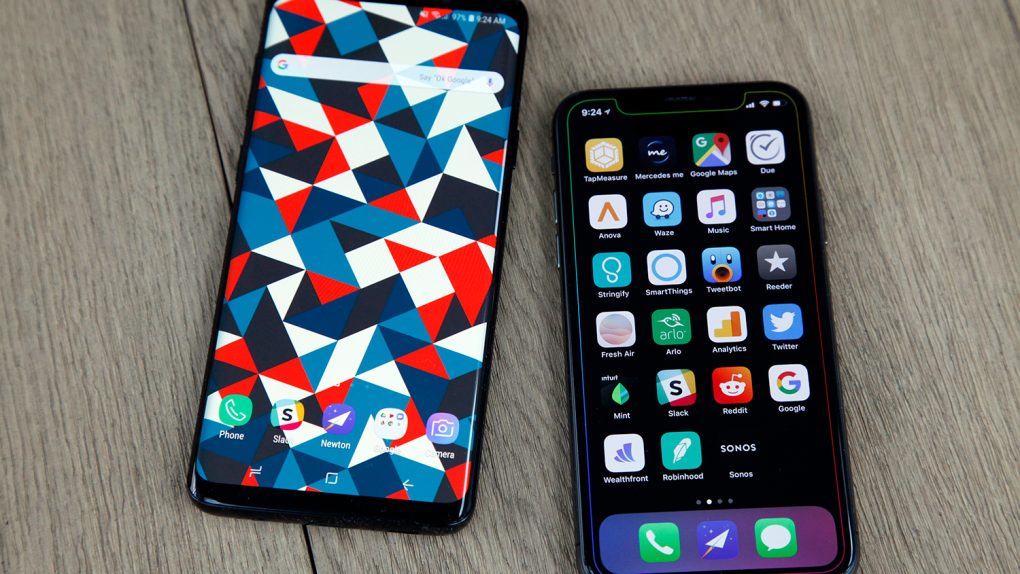Samsung’s Galaxy S9 is in desperate need of a win. The Galaxy S9 and Galaxy S9+ are easily two of the best smartphones the world has ever seen, and yet sales have been anything but impressive so far. The Galaxy S9 and Galaxy S9+ offer impressive performance, a sleek design, the best OLED displays the world has ever seen on a smartphone, and the best camera you can get on a flagship phone in the US. The problem appears to be the fact that the look almost exactly like last year’s Galaxy S8 and S8+, so people don’t seem to want to pay for the upgrade. In fact, sales are apparently so slow that the Galaxy S9 and S9+ got big price cuts at most US wireless carriers just one month after they were released.
On Tuesday, the Galaxy S9 and Galaxy S9+ finally got the win they so desperately needed when they were crowned the “fastest phones ever.” Sort of. Maybe. OK fine, they got an empty win that really doesn’t mean anything at all.
Under the headline “Don’t Let Your Phone Slow You Down: New Data from Ookla Shows the Galaxy S9 and S9+ are the Fastest Phones Ever,” Samsung on Tuesday announced that its Galaxy S9 and Galaxy S9+ have emerged victorious in the latest round of testing from Ookla. Of course, as the name Ookla indicates, we’re not talking about processor speed or anything else that has a big impact on the user experience. In fact, this title probably doesn’t mean anything at all.
Ookla tests data speeds, and the company has determined that the Galaxy S9 and Galaxy S9+ have the fastest download speeds ever seen on a smartphone. The tests found that the Galaxy S9 and Galaxy S9+ are 38% faster than the Galaxy S7 from two years ago, 17% faster than the Google Pixel 2, and 37% faster than Apple’s iPhone X.
That all seems like it should be a very big deal, but unfortunately that’s not the case. Data speeds are important, but only to a point. The Galaxy S9 and Galaxy S9+ have a CAT 18 LTE modem capable of supporting data speeds up to a whopping 1.2Gbps, which is incredibly impressive. Of course, nothing an end user will download will ever reach speeds that come anywhere close to that figure.
“This summer, consumers are going to be on the road, at the beach, and relying on their phones more than ever, but without the latest and fastest network technology that’s available in the Galaxy S9 and S9+, their phones may quite literally slow them down,” Samsung’s Mobile Product Strategy and Marketing SVP Justin Denison said in a press release. “At Samsung, we’re constantly innovating and developing products that set the new standard for the industry. Our Galaxy owners never need to worry about whether they’re getting the best possible experience from their phone.”
Samsung doesn’t share any actual average download speeds in its press release. There is some hilarious video b roll though, and it shows superimposed graphics of a Galaxy S9 enjoying download speeds of up to 60Mbps while an iPhone X chokes and maxes out at 10Mbps. These figures obviously don’t represent any actual data from Ookla’s speed tests.
In real life, every flagship smartphone from major phone brands is capable of supporting the fastest download speeds users will ever encounter in real life. That includes the iPhone X, the Google Pixel 2, and even the Galaxy S7. The only thing a user might ever connect to that supports the kind of download speeds seen in speed tests is… a speed test.
UPDATE: An Ookla spokesperson contact BGR with the company’s Speedtest Intelligence data for February through April 2018, which consists of mean download speed weighted averages on major US wireless carriers’ LTE networks. For reference, here are the results for the four handsets mentioned in this article:
- Galaxy S9/S9+: 43.08 Mbps
- iPhone X: 31.53 Mbps
- Pixel 2: 36.97 Mbps
- Galaxy S7: 31.31 Mbps







